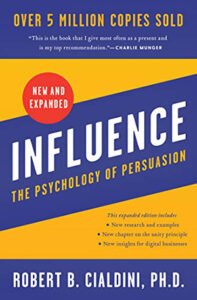|
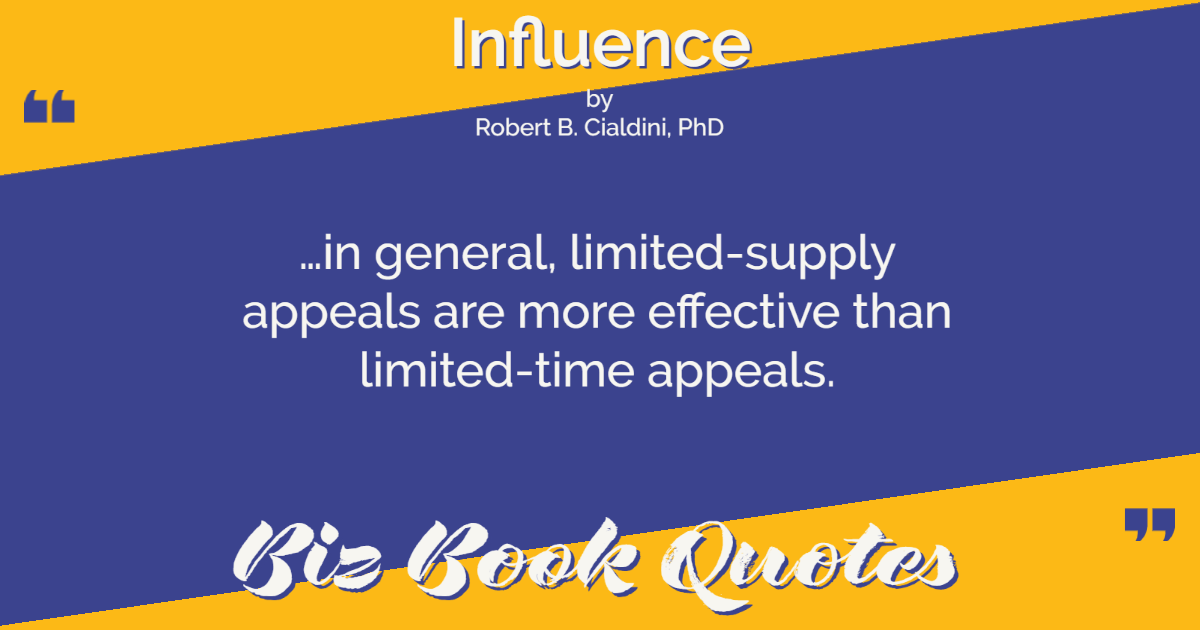
|
Influence:
…in general, limited-supply appeals are more effective than limited-time appeals.
|
254 |
|
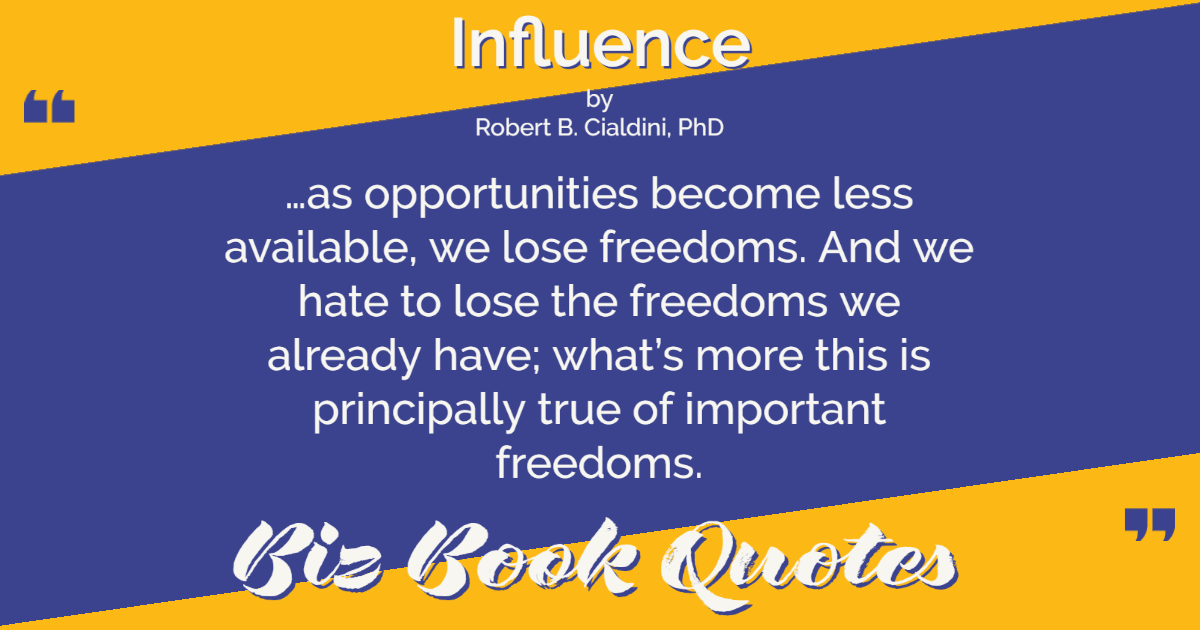
|
Influence:
…as opportunities become less available, we lose freedoms. And we hate to lose the freedoms we already have; what’s more this is principally true of important freedoms.
|
257 |
|
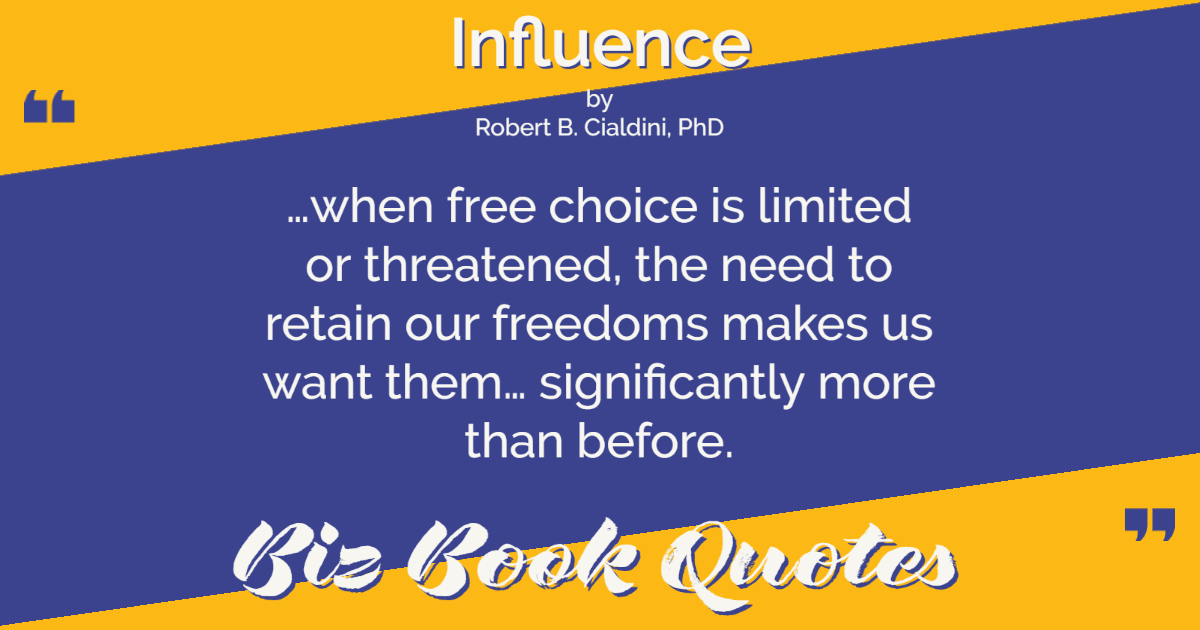
|
Influence:
…when free choice is limited or threatened, the need to retain our freedoms makes us want them… significantly more than before.
|
257 |
|
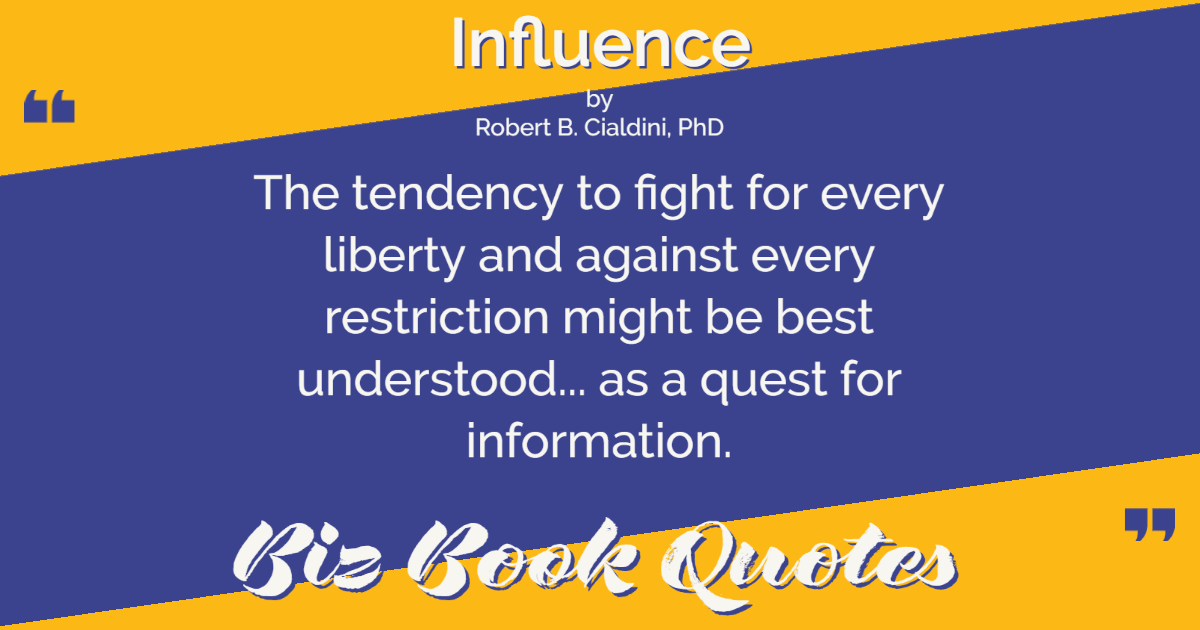
|
Influence:
The tendency to fight for every liberty and against every restriction might be best understood… as a quest for information.
|
259 |
|
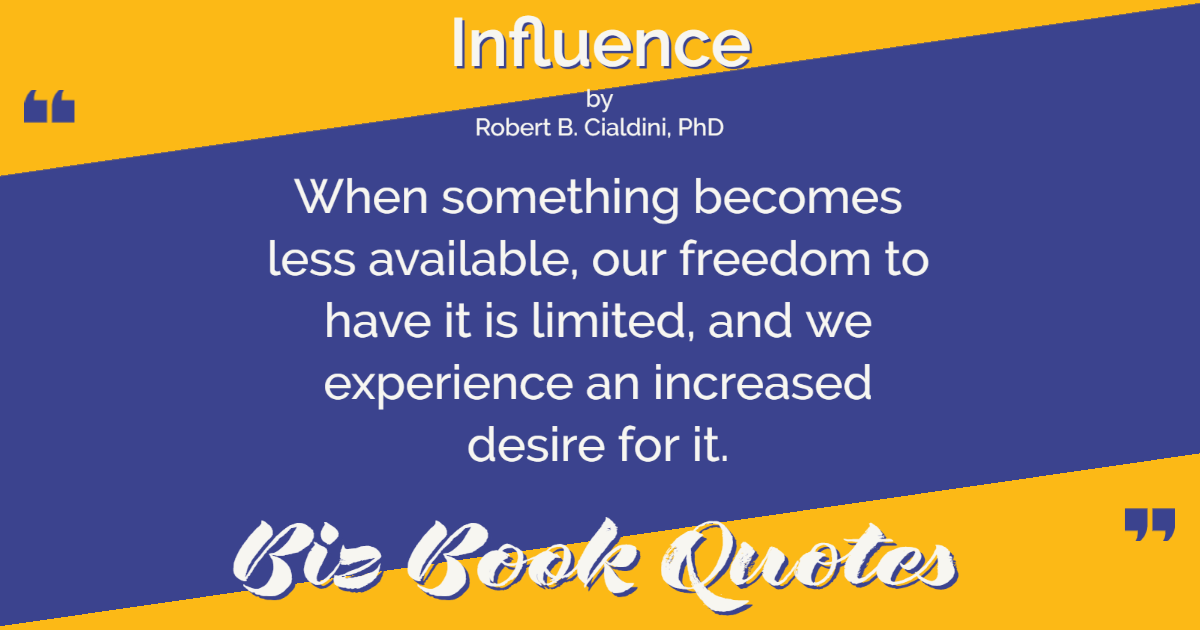
|
Influence:
When something becomes less available, our freedom to have it is limited, and we experience an increased desire for it.
|
263 |
|
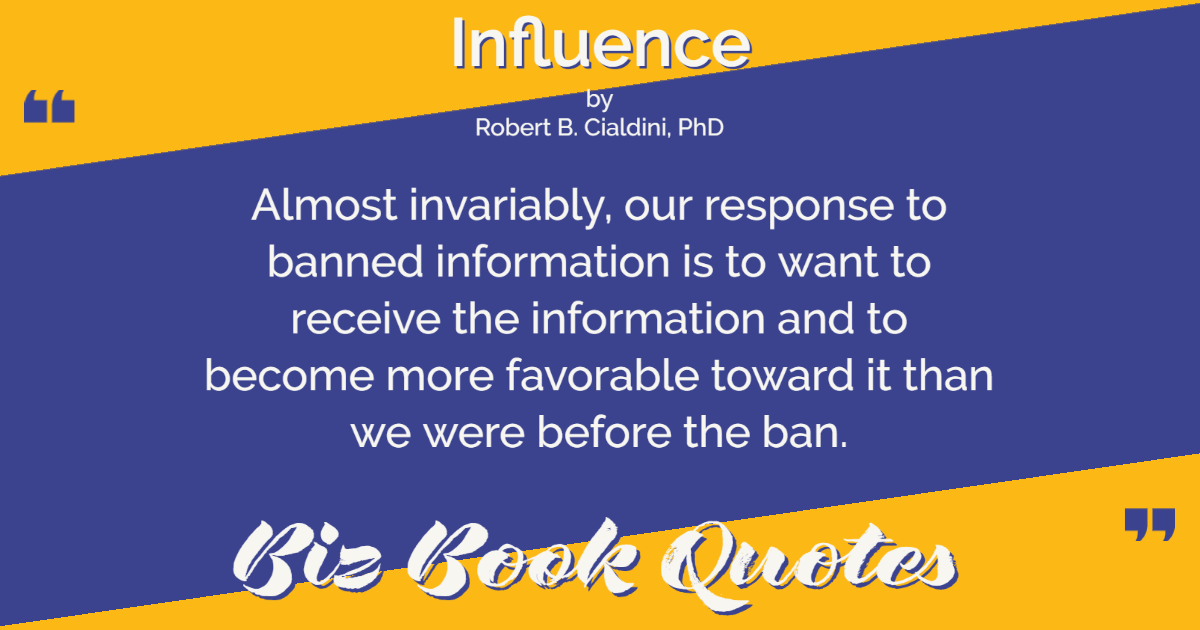
|
Influence:
Almost invariably, our response to banned information is to want to receive the information and to become more favorable toward it than we were before the ban.
|
264 |
|
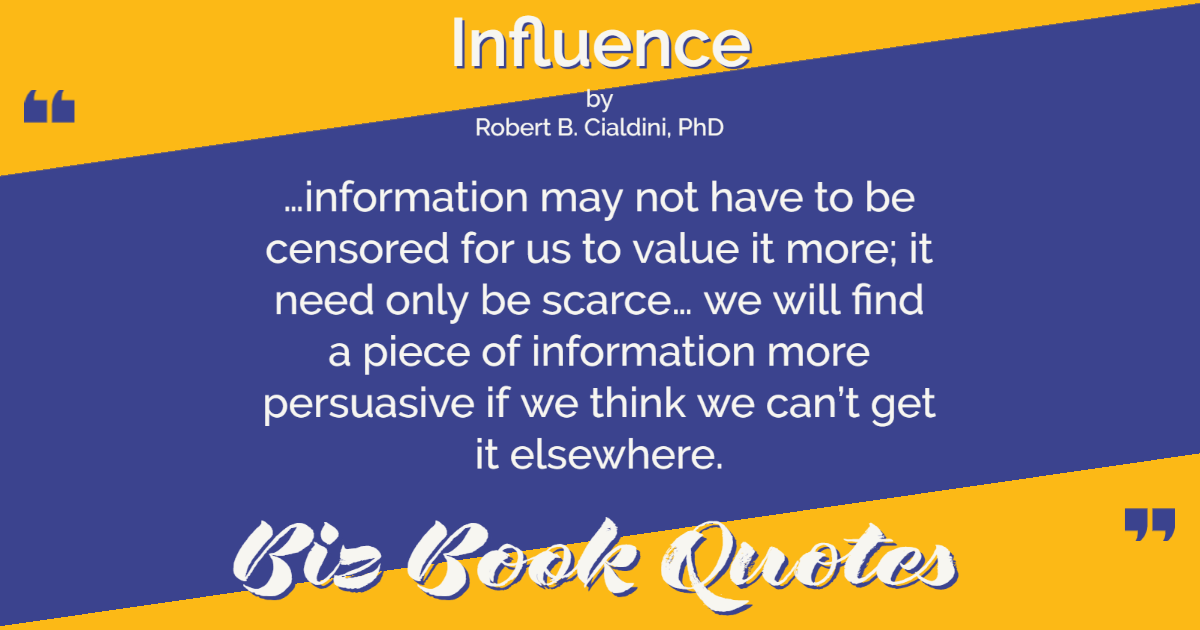
|
Influence:
…information may not have to be censored for us to value it more; it need only be scarce… we will find a piece of information more persuasive if we think we can’t get it elsewhere.
|
266 |
|

|
Influence:
When people encounter a piece of information, they immediately become less likely to accept it if they view it as part of an effort to persuade them.
|
267 |
|
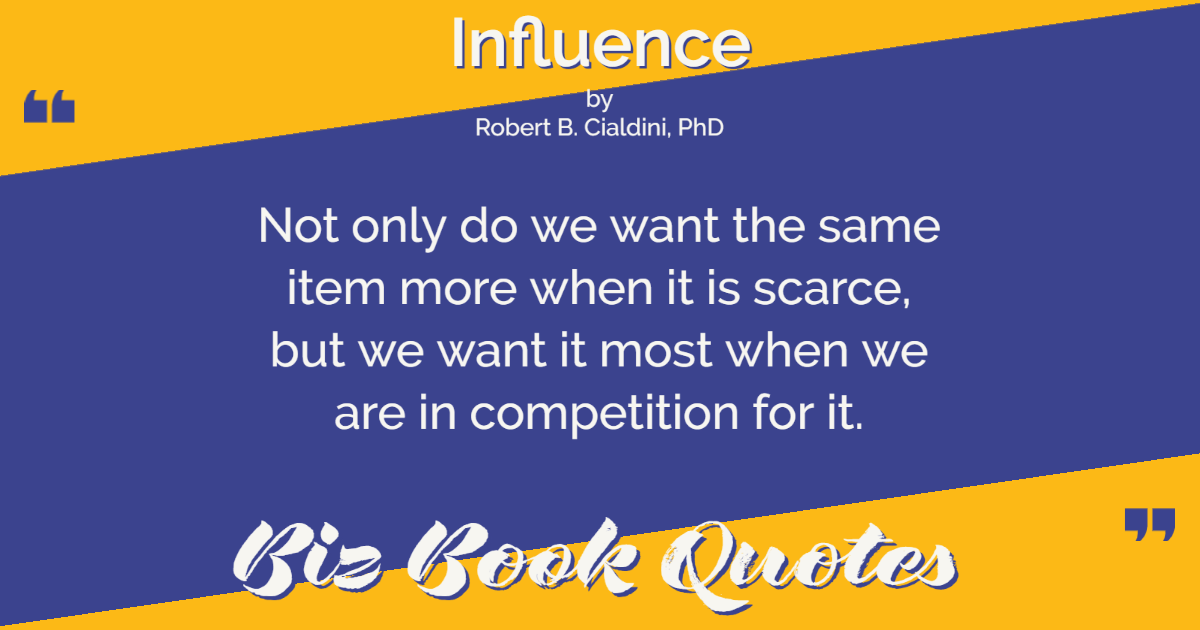
|
Influence:
Not only do we want the same item more when it is scarce, but we want it most when we are in competition for it.
|
278 |
|
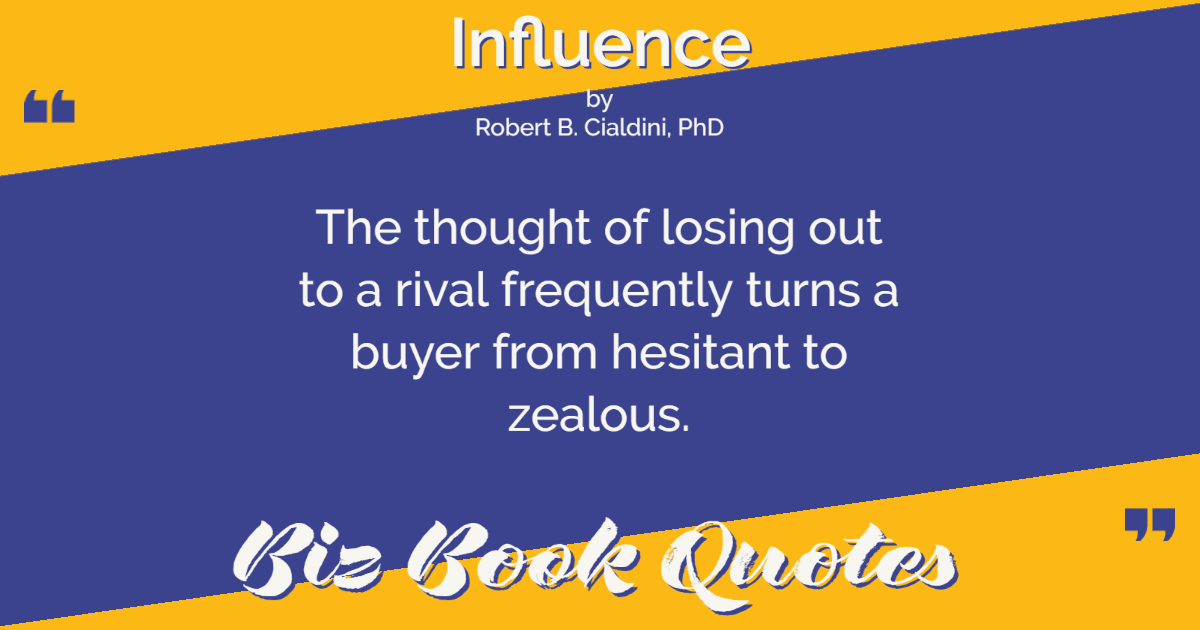
|
Influence:
The thought of losing out to a rival frequently turns a buyer from hesitant to zealous.
|
278 |
